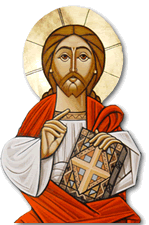 We Must be Alert
We Must be Alert
Non Ecclesiastic chants and songs are superficial in the meaning of its words, compared to the rich level of the Church hymns and the Psalmody. These type of chants or songs have to be checked before publicizing it.
Those who use it and listen to it have no sense for the Coptic music beauty, and degrade their sense of listening by their ears by stooping low to replace a seven star music, down to a one star or even no star!
These chants and songs do not coincide and/or coordinate with our rich; heavenly music expressing theological, dogmatic and musical heritage.
Using the ‘dancing music’ of the world, to compose these chants are not spiritual, but fleshly, the least to say. This type of music is not to be used in the Church.
Not any one should compose chants and songs and deliver to the public … This type of songs have no theological or dogmatic depths in its meaning, beside the weak wording of the composure.
Utilize the musical and vocal efforts of the youth by teaching them the rich and satisfying Coptic heritage, and presenting it in the various occasions, in a spiritual manner, and a humble and edifying way, pleasing the people and to give the youth satisfaction.
Praising in the Coptic Church
The nature of chanting and praising in the Coptic Orthodox Church, as delivered to us from the early fathers, is by VOCAL MUSIC only, meaning the human voice is the source for depicting the Church’s rites through its Liturgy, prayers and praises.
As Ms. Margaret Duke wrote in her book; The Coptic Church, 1978, that;
The human voice only offers glory to God.
She also said that the instruments stands between God and man.
The ‘cymbals’ and the ‘trianto’ are allowed to be used in Church only to control the tune.
As these instruments are used calmly and in a quite way, the beauty of the hymns prevail .
Some prefer not to use these instruments during Great Lent.
As for Passion Week, their usage are forbidden, for the reverence and awe of the occasion.
Nowadays, the Church uses the ‘cymbals’, known in Greek as ‘Kimvalon’, while in Arabic they mistaken it for ‘timbrel’.
The word ‘cymbals’ was mentioned in Psalm 150 twice; Praise Him with pleasant sounding cymbals. Praise Him, upon the cymbals of joy.
The cymbals in the old, are huge and heavy, and causes a loud sound when used to play music constantly. Which proves that it was used only to control and adjust the beginning of the chant or when needed to change tunes, to alert the chanters to harmonize their voices.
They are kept in our Coptic Monasteries.
Conclusion
May the good Lord grant us to “sing unto Him a new song” (Psalm 149:1), and chant with understanding, from the depth of the heart in the spirit of prayer and worship. May He accept the service of praising, which is for the Seraphim, from our mouths as a sweet savor before Him.
Through the intercessions of our blessed Mother of God, the holy Virgin Mary, and the great chief of the heavenly hosts Archangel Michael, and our beloved Evangelist St. Mark the Apostle, martyr, and beholder-of-God, and our beloved father, the great among the Patriarchs H.H.Pope Shenouda III, and his partner in the Apostolic ministry His Grace Bishop Serapion. Amen.
